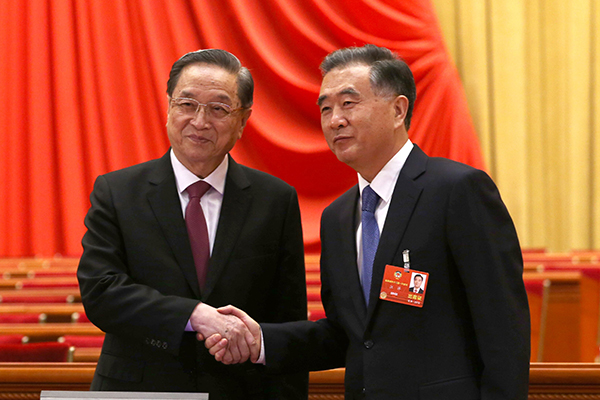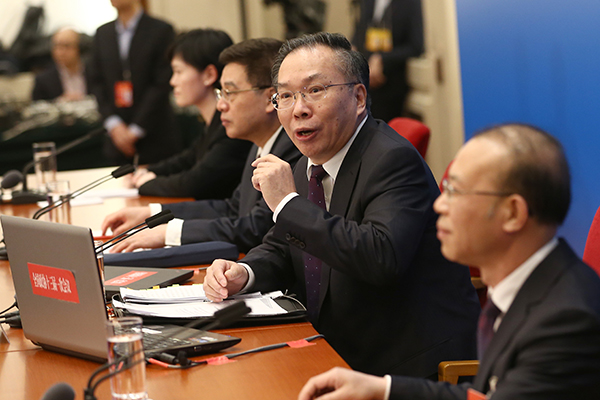'Sharp power' accusations seen as unfair ploy to tarnish China's image


Double standards and Cold War-era thinking are behind the recent voices alleging that China is boosting its publicity worldwide in order to impose "sharp power" on others, a spokesman for China's top political advisory body said.
Western countries that do likewise have been described as showcasing soft power or smart power, but China has been accused of having an ulterior motive or showing "sharp power", said Wang Guoqing, spokesman for the first session of the 13th National Committee of the Chinese People's Political Consultative Conference. He made the remarks at a news conference on Friday in Beijing when asked about the accusations.
Such allegations are full of prejudice, discrimination and hostility, and they are the latest version of views hyping China's threat, the spokesman added.
"It is not the first time, and I think it will not be the last time, that a new term is created to tarnish China's image," Wang said.

As China's overall strength is on the rise, it has stepped up its publicity overseas in order to present its image and help the international community get to know China in a timely and accurate way, Wang said.
When asked about recent comments made by US officials about Washington's regret on allowing China's entry into the World Trade Organization in 2001, Wang said that "a major country should honor its commitments".
The spokesman said that after entering the WTO, China has seriously fulfilled its commitments regarding tariff and market opening, opposing protectionism and promoting fair competition.
Wang also said many members of the WTO have been worried by the unilateralist words and actions of the US, and both China and the US should defend the authority of the WTO rules.
Speaking on China-Japan ties, Wang said Beijing and Tokyo should accumulate positive factors, put the bilateral ties back on a track of normal development at an early date, and create a proper atmosphere for high-level exchanges.
Recently, Japan has sent some positive signs regarding its relationship with China, and China-Japan ties have showcased some promising signals, he said.
The root cause behind the ties' repeated ups and downs is the fact that the Japanese government has repeatedly betrayed commitments it made regarding issues of history and the fact that some Japanese politicians consider China to be Japan's strategic rival, Wang said.
Agenda
Saturday
3 pm: The first plenary session of the 13th CPPCC National Committee, the top political advisory body, opens. Chairman Yu Zhengsheng will deliver a work report.
- Major airport in Guangzhou sees record passenger throughput
- China launches new project to support young scientists
- Big lottery winners in Guangzhou claim prize
- No indication of big earthquake to occur in Ningxia, said officials
- Rural China tackles hefty bride prices to ease marriage burdens
- 8 killed, 15 injured in market fire in North China's Hebei





































